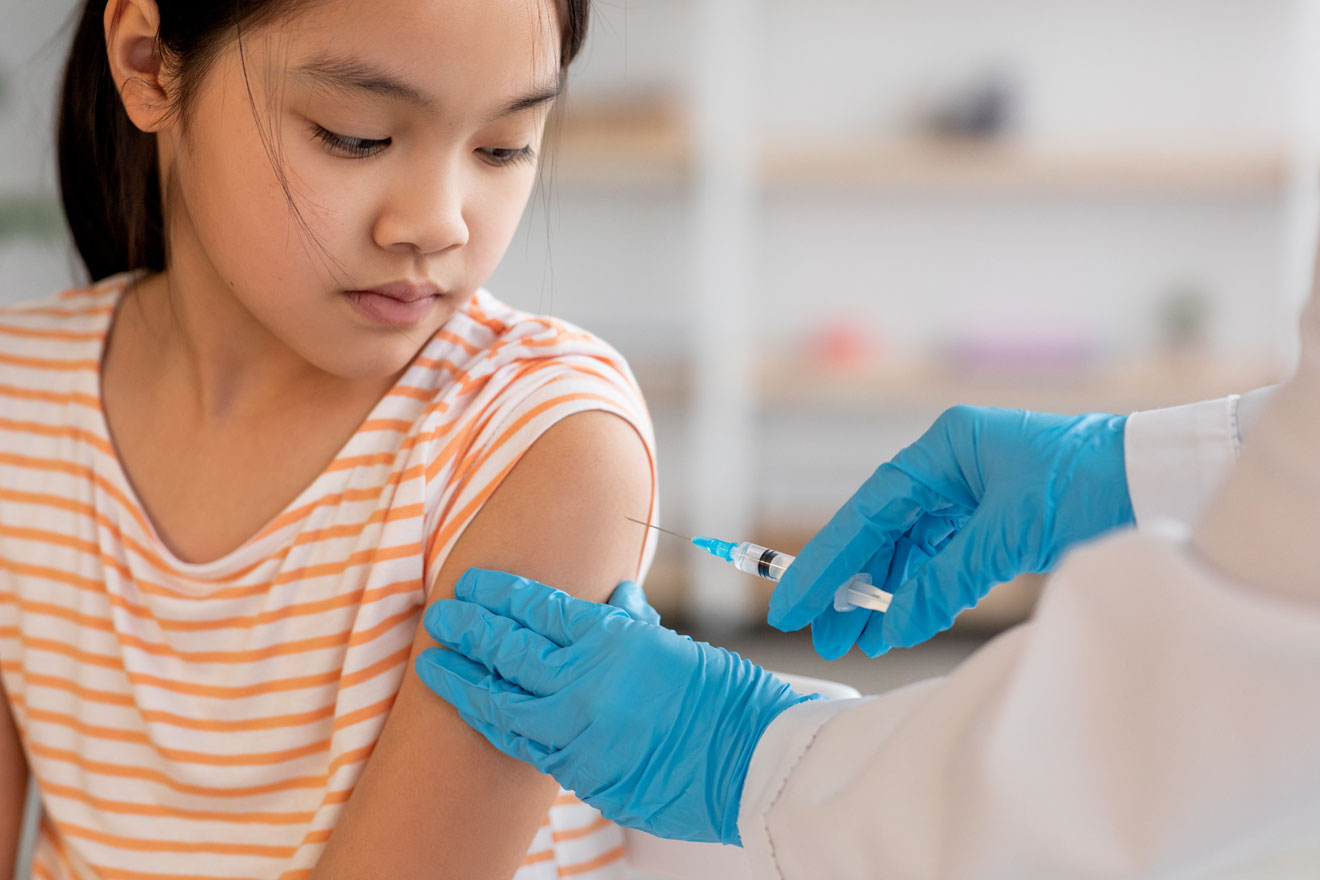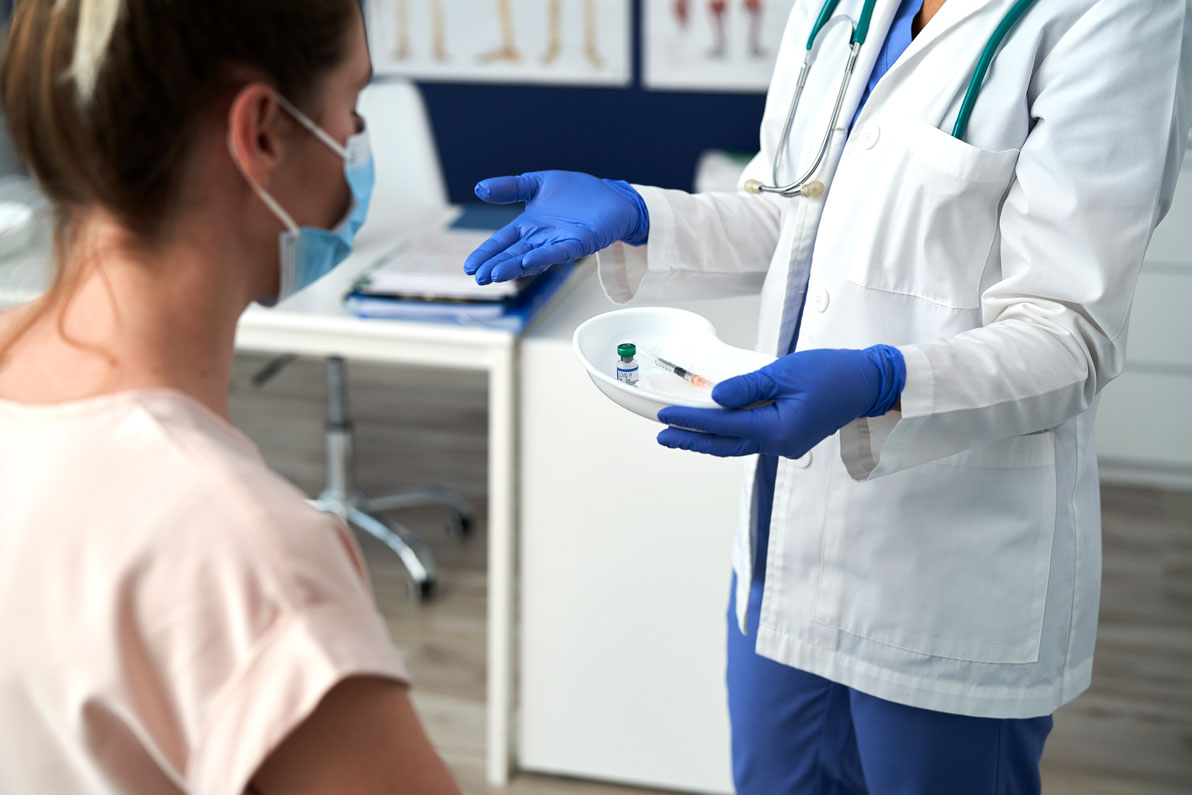- hello@keystonemedical.com.sg
- Ang Mo Kio: +65 8809-8553
- Tanah Merah: +65 9296-5568
Influenza (flu) is a highly infectious respiratory viral illness that is transmitted via respiratory droplets propelled by coughing and sneezing, or via contact with contaminated surfaces.
Getting vaccinated annually is considered ideal since the influenza viruses mutate rapidly and regularly and your body’s immunity to influenza viruses will usually decrease over time. While it is commonly treated as an inconvenience, some people do face grave consequences after contracting the flu.
While it is possible to catch influenza (flu) at any time, there are two peak flu seasons in Singapore — April to July and November to January due to the weather conditions.
Moreover, getting a flu vaccination before traveling is recommended because you may interact with people from areas of the world where influenza viruses are circulating as the flu seasons for these countries may be different from Singapore.
The flu vaccine or flu shot is either given by injection into a muscle or just underneath the skin. Take note that it usually takes around two weeks for protection to develop after immunization.


The National Adult Immunisation Schedule (NAIS) and National Childhood Immunisation Schedule (NCIS) recommends that individuals at a higher risk of developing adverse influenza infection and severe outcomes should receive a flu vaccination. These include young children between six months old and five years old as well as the elderly who are aged 65 and above.
You are considered a good candidate for the flu vaccine if:
The flu vaccine is also recommended for people with certain medical conditions, which predisposes them to severe influenza symptoms, such as:

Studies show that the inactivated influenza vaccine is safe in all trimesters of pregnancy with no evidence of a link between the vaccination and pregnancy complications or adverse fetal outcomes. In fact, getting a flu vaccination is recommended for pregnant women because they are at a higher risk of contracting severe influenza complications.
Yes, it is recommended that you still get your flu vaccination annually. The flu and COVID-19 are caused by different viruses even though their symptoms are similar, and there have even been reported cases of superinfection.
The Ministry of Health recommends an interval of at least 14 days between a non-COVID-19 vaccine and a COVID-19 vaccine. However, if you wish to do so, persons above 5 years old can get a flu vaccination even within 14 days of the COVID-19 vaccination. Children aged 6 months to 5 years should only get a flu vaccination within 14 days of a COVID-19 vaccination if recommended to do so by a doctor via a memo.
There are subsidies available for CHAS card holders, the Pioneer Generation and the Merdeka Generation at CHAS GP clinics.
Eligible Singaporeans can use MediSave to help offset the remaining co-payment of vaccinations under the NAIS.
The flu vaccine can reduce the risk of flu-related illnesses, hospitalization and even death in vulnerable groups such as young children. Moreover, getting a flu vaccine can help reduce the chances of you contracting COVID-19. This is because getting the flu vaccine reduces the chances of you contracting the flu and maintains your body’s immune system. Therefore, with a stronger immune system, you are less likely to allow easy access for another virus to penetrate your body.
Fever, fatigue, nausea, body aches, and swelling or pain at the injection site are possible side effects of the flu jab. While very rare, it is possible that more severe side effects such as chest pain, wheezing, facial swelling, generalized rashes, and breathing difficulty may be experienced. If you experience any of the severe symptoms mentioned, seek medical attention right away.
Yes, flu vaccines and COVID-19 vaccines can be administered in one visit if you are due for both vaccines.
The flu vaccine only protects you against the influenza virus and not the COVID-19 virus. Therefore, getting a flu vaccine is recommended for optimal protection during the COVID-19 pandemic.
Regardless of age, you should get a flu vaccination because you cannot predict that you will not suffer from any severe complications should you contract the flu. Prevention is always better than cure.
